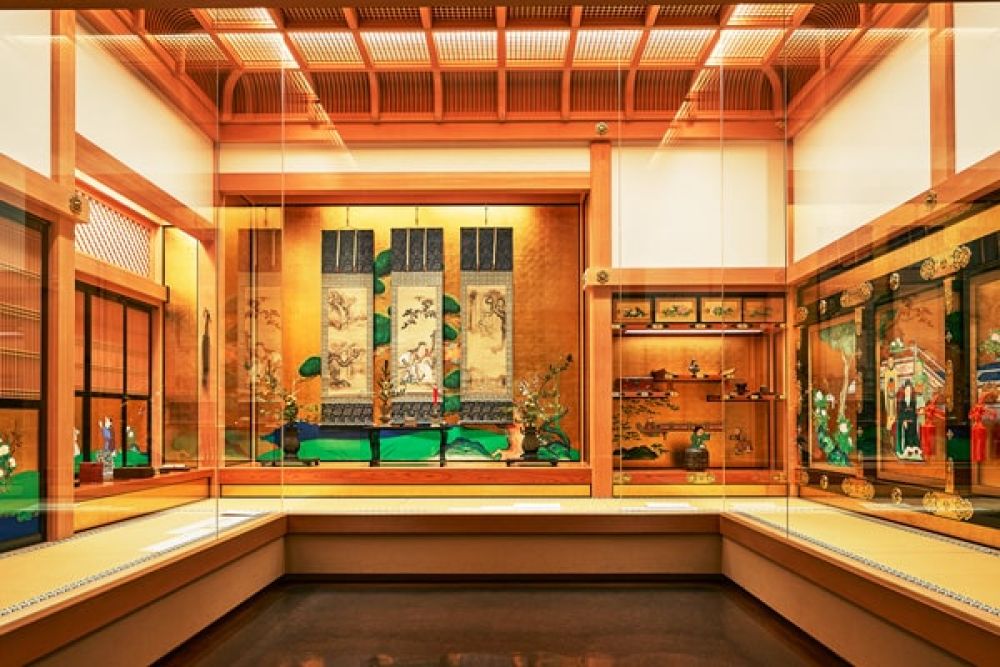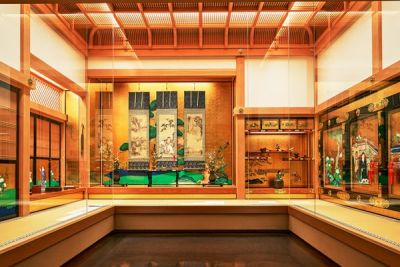

Explore the rich cultural heritage of the Tokugawa shogunate at the Tokugawa Art Museum, Nagoya, Japan. This activity offers a deep dive into the world of Japanese feudal lords, showcasing artifacts dating from the Edo period. Visitors will have the opportunity to view an exceptional assortment of samurai armor, weapons, Noh costumes and masks, tea ceremony utensils, and beautifully detailed scrolls of 'The Tale of Genji,' Japan's oldest novel. The exhibits are well-curated, providing both an educational and visually captivating experience. Furthermore, the museum frequently updates its displays, drawing from its extensive collection to ensure that repeat visitors always have something new to discover. An audio guide is available in several languages, offering comprehensive context and enhancing the understanding of the artifacts on display.
Throughout the year, the Tokugawa Art Museum hosts various seasonal exhibitions that focus on different aspects of Japanese art and culture. These limited-time displays draw from the museum's own extensive collection as well as from other cultural institutions to highlight specific themes or eras. From intricately designed kimonos to delicate porcelain and innovative ukiyo-e prints, each exhibition provides a deep understanding of Japan's rich artistic traditions. Visitors are treated to a unique experience that complements the museum's permanent collection. Whether you're an art connoisseur or simply looking to expand your cultural horizons, these exhibitions are designed to educate and inspire.
The Tokugawa Art Museum offers hands-on cultural workshops that allow participants to immerse themselves in traditional Japanese arts and crafts. These unique activities range from calligraphy and origami to ikebana (flower arranging) and tea ceremony practices. Participants will learn from experienced instructors and gain firsthand experience in creating their own pieces of Japanese art. The workshops are not only educational but also provide a relaxing and meditative experience, offering a break from the typical pace of sightseeing. Whether you're looking to try something new or deepen your understanding of Japanese culture, these workshops are a rewarding addition to your visit.
Adjacent to the Tokugawa Art Museum is the Tokugawaen, a traditional Japanese garden with a history that traces back to the Edo period. Visitors can take a leisurely stroll through this picturesque landscape, which features a central pond, cascading waterfalls, and carefully manicured greenery that follows the aesthetic principles of Japanese garden design. Each season brings a new face to the garden: cherry blossoms in spring, vibrant greenery in summer, fiery maple leaves in autumn, and the serene beauty of snow in winter. This tranquil garden provides a serene escape from the city and a moment of reflection on the natural beauty that has inspired Japanese art and culture for centuries.
To enhance your visit to the Tokugawa Art Museum, consider renting an audio guide. The audio guide provides comprehensive information about the museum's collection, sharing insights and stories behind the artifacts that may not be immediately apparent. It offers a narrated journey through the history of the Tokugawa shogunate and the development of Japanese art and culture. Available in multiple languages, the audio guide is an excellent resource for international visitors. It allows you to explore the museum at your own pace while gaining a deeper understanding of each exhibit. This is particularly useful for those seeking an in-depth exploration of Japan's feudal history and the treasures of the Tokugawa family.
Conclude your visit to the Tokugawa Art Museum with a stop at the museum shop, which offers a range of souvenirs, gifts, and artisan-crafted goods. From Japanese-style stationery and intricate replicas of museum artifacts to exclusive exhibition catalogues and books on Japanese culture, the shop provides a wide selection of items to remember your visit by. Art enthusiasts and collectors will also find an array of high-quality prints, allowing them to take home a piece of Japanese art. The products available in the museum shop are carefully chosen to reflect the quality and aesthetic of the museum's own collection, ensuring that visitors have access to authentic and memorable mementos.
While most museums have strict rules about photography, the Tokugawa Art Museum occasionally hosts special events and exhibitions that allow photography, giving visitors the rare chance to capture images of the exhibits. These events are an exciting opportunity for photography enthusiasts and casual visitors alike to document and share their experiences. The museum's striking displays of Japanese artifacts, set against the backdrop of the museum’s elegant architecture, offer the perfect backdrop for stunning photographs. These photography-friendly events are usually advertised in advance, so make sure to check the museum's schedule before your visit if you're interested in capturing memories of your time at the museum.
Partake in the Tokugawa Art Museum's story and history talks to gain deeper insight into the narratives and historical significance of the artifacts on display. These talks are led by knowledgeable museum curators or guest speakers who can shed light on the cultural, political, and artistic contexts of the Tokugawa period. The talks usually cover a range of topics, including the meaning behind certain motifs in artwork, the craftsmanship of samurai armor, and the influence of the Tokugawa shogunate on various art forms. Participants not only leave with a wealth of knowledge but also with a richer appreciation for the items they've seen. The story and history talks align with the museum's rotating exhibitions and permanent collection, allowing for a dynamic learning experience.
The Tokugawa Art Museum caters to young visitors with educational programs specifically designed for children. These engaging activities aim to introduce kids to the world of art and Japanese history in an interactive and enjoyable way. Programs may include treasure hunts within the museum, storytelling sessions that bring historical tales to life, or arts and crafts workshops where children can create their own samurai-inspired art. By offering a hands-on approach to learning, the museum fostors a love for cultural heritage among its youngest visitors. Education staff at the museum are skilled at making complex topics accessible and fun, ensuring that children of all ages leave with new knowledge and a memorable experience.
